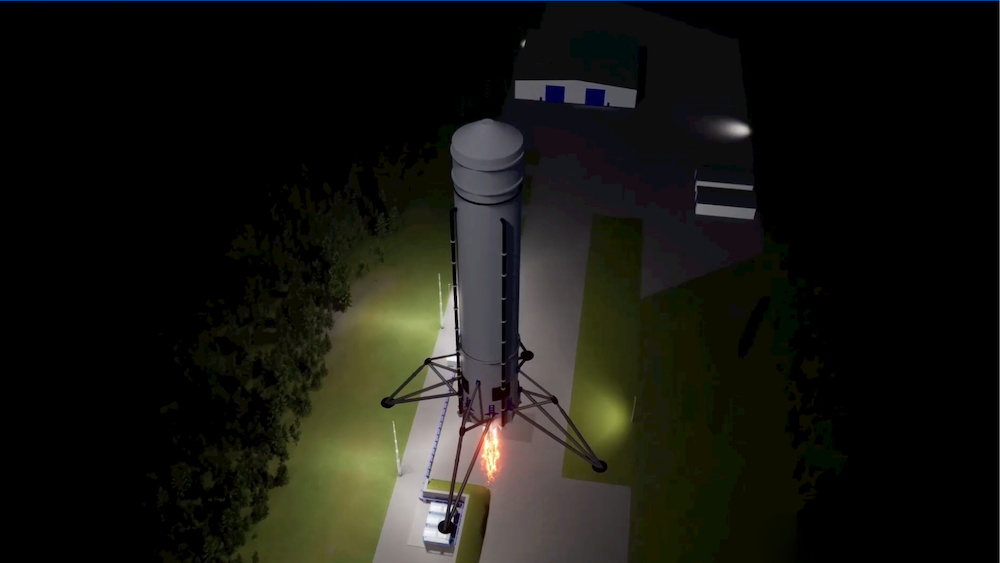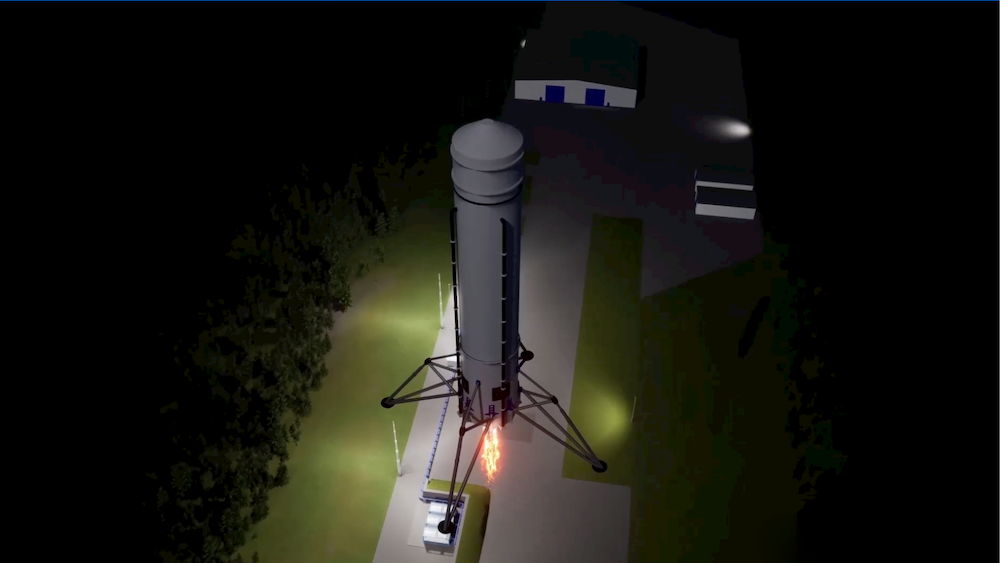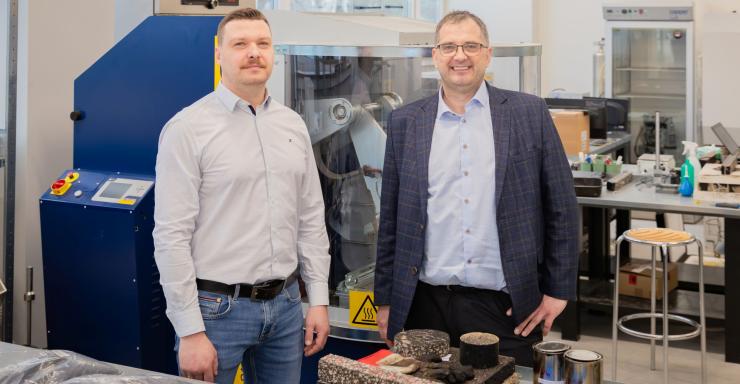To provide the wider public with insight into the stages of the hop test, depicting the anticipated lift-off and vertical landing of Europe’s first reusable rocket demonstrator “Themis”, the Latvian company WIT Berry has successfully led the development process of a 3D virtual experience. This platform allows students and the general public to easily explore how Europe is conducting the hop test campaign for reusable rockets.

The 3D virtual experience was developed in collaboration between WIT Berry and 3D specialists within the Horizon Europe-funded project SALTO. The main objective of the SALTO project is to test the vertical take-off and landing of a prototype reusable rocket stage. The project consortium includes 25 partners from 12 countries, with WIT Berry acting as the communications partner.
“We are not only the creators of this 3D experience but also responsible for all communication related to the SALTO project, including the hop test campaign. This gives us the opportunity to collaborate with European leaders in space and other advanced technologies, such as ArianeGroup, the German Aerospace Center (DLR), CNES, Safran, and many others,” says Linda Kimeiša, head of WIT Berry and communications specialist for the SALTO project.
Initial Tests Before the “Real” Spaceflight
The online 3D experience provides an overview of the main phases of the hop test, illustrating the lift-off, in-flight stabilization, and vertical landing of the “Themis” demonstrator. Linda Kimeiša explains that during a hop test, the rocket does not reach space but instead ascends to a height of around 20 to 30 meters before landing back on the ground. During this short flight, various measurements are taken to test the rocket’s performance under different parameters.
In aerospace, a demonstrator is a prototype or test model developed to prove that a new technology or system can function under real conditions. It is not a final product or commercially usable solution, but rather a critical phase in development. Demonstrators are used to verify new designs, reduce risks before full-scale production, and gather data for further improvements.
“Creating this 3D experience was a major challenge because it required gathering information from various partners and working as a team with everyone involved in the hop test implementation. The actual 3D experience was developed by specialists from Latvia, whom we engaged specifically for the drawings, animations, and the process,” says Kimeiša.
Close Collaboration with European Space Leaders
WIT Berry’s closest collaboration during this process was with the French national space agency CNES, ArianeGroup, and the Swedish Space Corporation. The 3D design process was complex, as many factors had to be considered.
“The positive part is that at the beginning of July, I had the opportunity to visit the test site and experience the 3D platform in real life. It did not disappoint, as everything – the premises, the site, the surroundings, the rocket – matches what was created in the 3D experience,” Kimeiša adds.
Towards Independent Access to Space for Europe
“The goal of the SALTO consortium is not only to develop technology but also to share the knowledge gained – with professionals, students, enthusiasts, and the general public. This 3D experience offers a glimpse into one of the key steps in Europe’s journey toward independence and sustainability in space access,” emphasizes Kimeiša.
Currently, the “Themis” demonstrator – Europe’s first reusable rocket stage developed under the European Space Agency’s Future Launchers Preparatory Programme, with ArianeGroup as the lead developer – has been successfully delivered to the Esrange Space Center in Sweden. At the same time, the 3D experience visualizing the upcoming hop test has been made publicly available.
Kimeiša explains that this step marks the beginning of the next phase of the SALTO project – a carefully planned testing campaign that includes integration, system checks, and initial low-altitude flights. These are intended to demonstrate vertical landing capabilities – a crucial step toward reusable launch vehicles in Europe.


